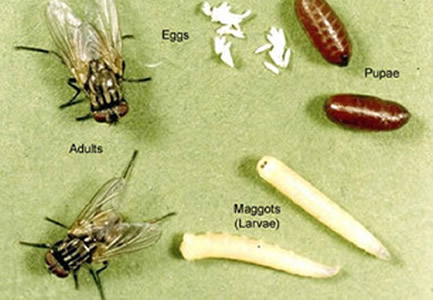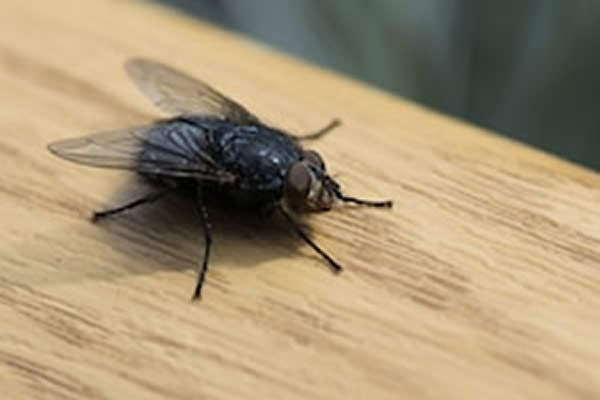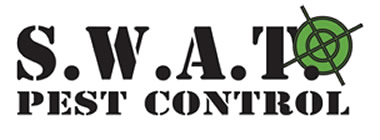Fly Control
For effective, lasting results in fly control, call SWAT Pest Control.
We have the local expertise and knowledge to achieve the results you expect, and we are right on your doorstep!
What do I need to know about flies?
The fly life cycle has four stages. These stages move from eggs to larvae and pupae to adult. House flies have an incredible ability to reproduce, however, the fly life-span is typically short, between 15 and 25 days

The life cycle of a fly begins with the egg. The female house fly can lay anywhere from 75 to 150 eggs in a batch. She can lay an estimated five or six batches of eggs during her lifetime, starting on average, about 12 days after reaching full maturity.
Eggs take eight to 20 hours to hatch and reach the first of three larval stages. During this part of the fly life cycle, larvae are also referred to as maggots. Maggots grow rapidly and must moult, or shed a layer of skin, before each larval stage. Each stage takes anywhere from three days (in temperatures above 80 degrees Fahrenheit) to eight weeks (in cooler climates).
The larval stage is followed by the pupal stage. It is during this stage that the white, characterless maggot begins to take the form of an adult fly. The pupal stage lasts four to six days in warm temperatures.
Why is it important to take action when flies are present?
As we are all too aware, flies are often landing on surfaces in our home and workplace. Unfortunately, as they do so they are depositing thousands of bacteria which can lead to many diseases and illnesses:

- Diarrhoea
- Food poisoning
- Vomiting
- Salmonella
- Staphylococcus
Spotting a one-off fly in your premises usually isn’t much cause for alarm, however, numbers increase very rapidly and it is wise to take precautionary action to prevent these unwanted visitors breeding to infestation levels.
Fly Control Tips
Quick and effective ways to help reduce your fly population
- Have fly screens fitted to windows and doors to make entry difficult
- Keep all rubbish bins tightly sealed and secure so flies cannot enter and use it as a breeding ground
- Keep food sealed and contained
- Clean up any spills, food scraps or crumbs on counter tops or floors
- Store compost bins away from buildings
- Remove lawn clipping from property as they are a warm, moist breeding ground
- Remove pet faeces from your lawn or around your property daily!

